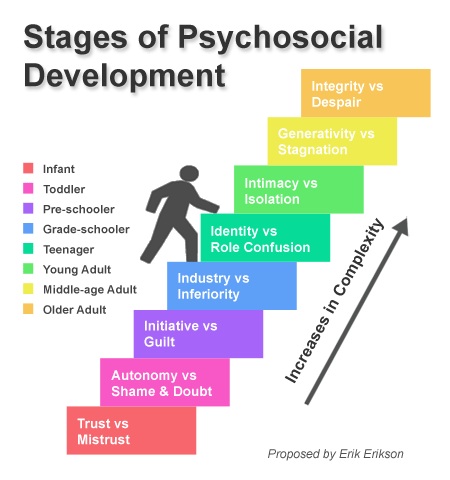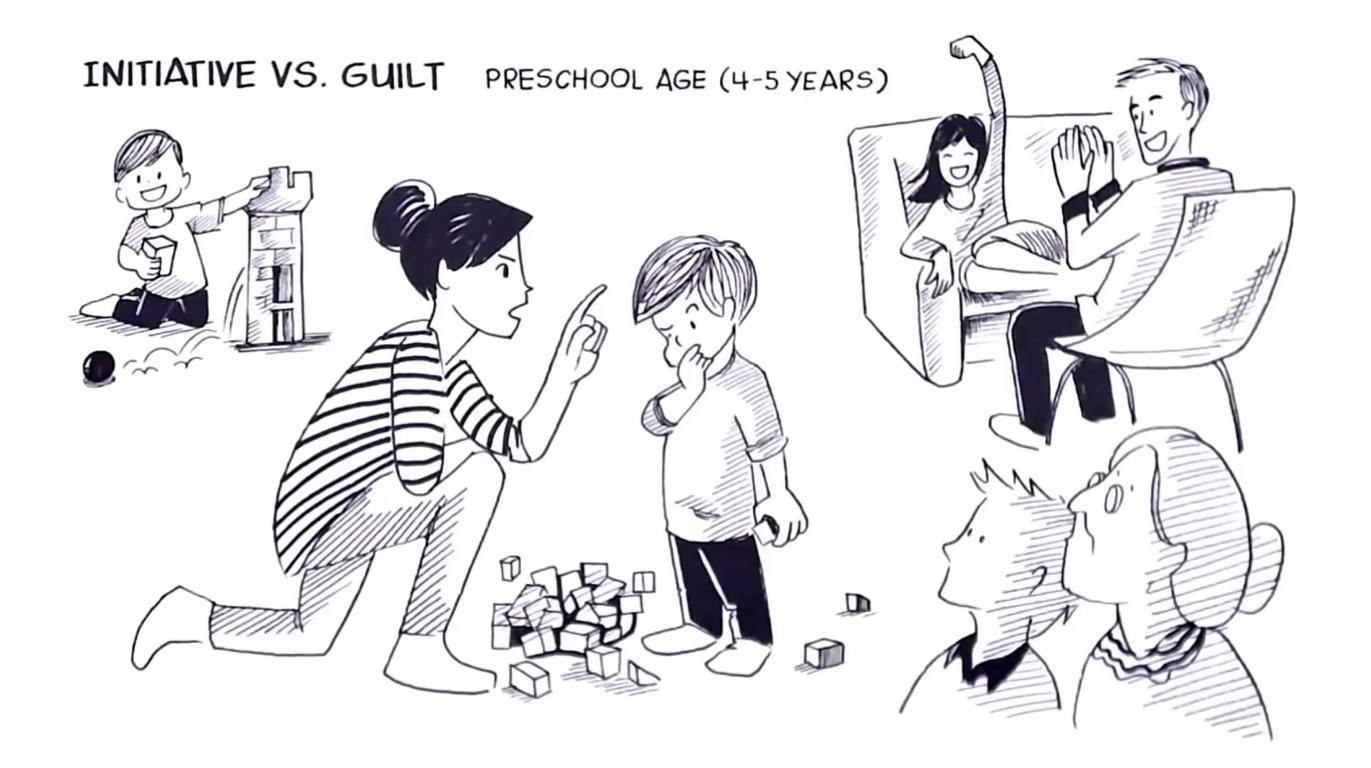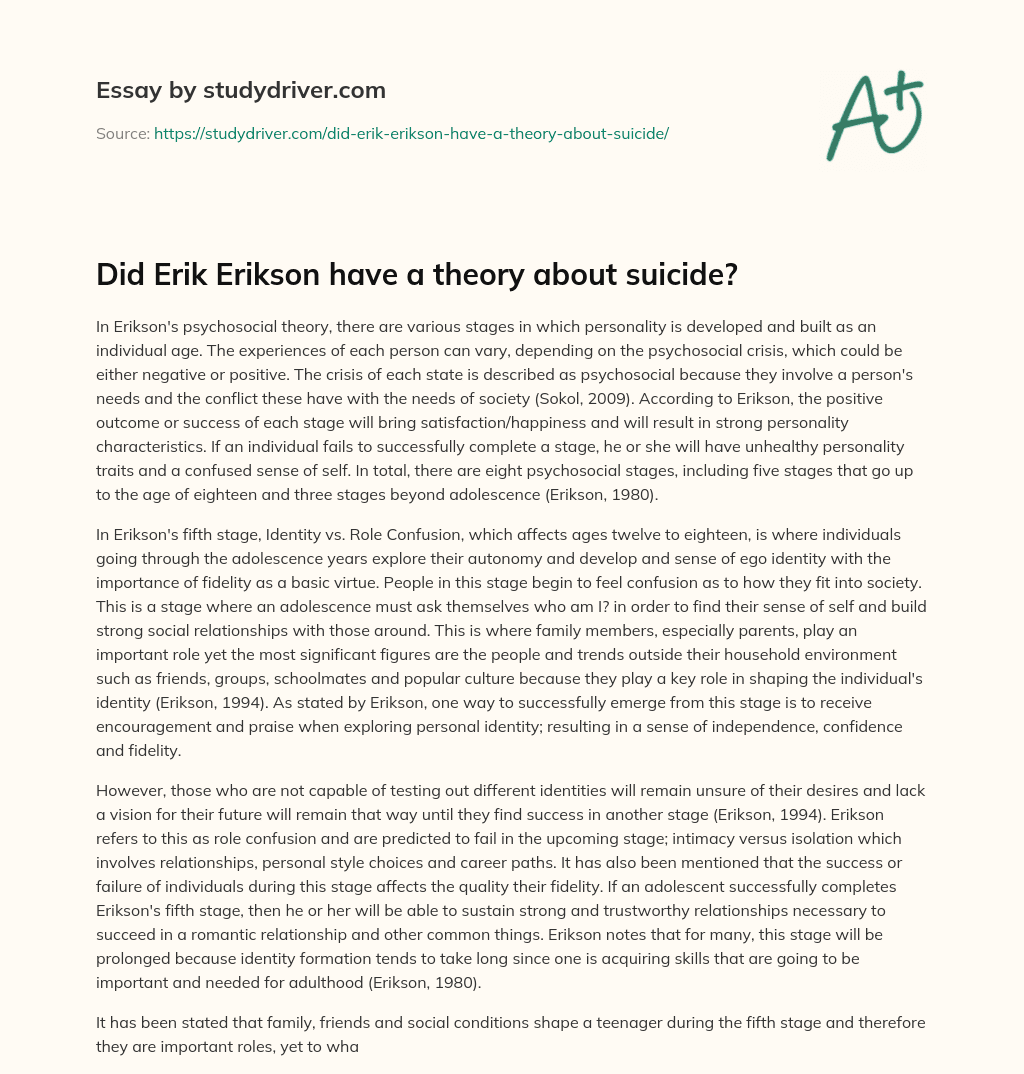Erikson's theory of psychosocial development is a psychological theory that explains how an individual's personality develops and changes throughout their lifespan. It is based on the work of developmental psychologist Erik Erikson, who proposed that an individual's personality is shaped by their experiences and interactions with the world around them.
According to Erikson, there are eight stages of psychosocial development, each of which is marked by a different conflict that an individual must resolve in order to successfully progress to the next stage. These conflicts are known as psychosocial crises, and they are essential for an individual's healthy development.
The first stage of Erikson's theory is the trust versus mistrust stage, which occurs during infancy and early childhood. During this stage, an individual must learn to trust that their basic needs will be met by their caregivers. If this trust is established, the individual will develop a sense of security and self-confidence. If trust is not established, the individual may develop feelings of mistrust and insecurity.
The second stage is the autonomy versus shame and doubt stage, which occurs during early childhood. During this stage, an individual must learn to be independent and make their own decisions. If they are successful, they will develop a sense of self-control and self-esteem. If they are not successful, they may feel ashamed and doubt their abilities.
The third stage is the initiative versus guilt stage, which occurs during middle childhood. During this stage, an individual must learn to initiate and plan activities. If they are successful, they will develop a sense of purpose and direction. If they are not successful, they may feel guilty and blame themselves for their failures.
The fourth stage is the industry versus inferiority stage, which occurs during late childhood and early adolescence. During this stage, an individual must learn to work and achieve success. If they are successful, they will develop a sense of competence and self-esteem. If they are not successful, they may feel inferior and doubt their abilities.
The fifth stage is the identity versus identity confusion stage, which occurs during adolescence. During this stage, an individual must define their identity and figure out who they are and what they want to do with their lives. If they are successful, they will develop a strong sense of self and purpose. If they are not successful, they may feel confused and uncertain about their identity.
The sixth stage is the intimacy versus isolation stage, which occurs during young adulthood. During this stage, an individual must learn to form close and meaningful relationships with others. If they are successful, they will develop a sense of belonging and intimacy. If they are not successful, they may feel isolated and alone.
The seventh stage is the generativity versus stagnation stage, which occurs during middle adulthood. During this stage, an individual must contribute to the next generation and make a positive impact on the world. If they are successful, they will feel fulfilled and satisfied with their lives. If they are not successful, they may feel stagnant and unfulfilled.
The eighth and final stage is the ego integrity versus despair stage, which occurs during late adulthood. During this stage, an individual must reflect on their life and come to terms with their accomplishments and failures. If they are successful, they will develop a sense of ego integrity and acceptance. If they are not successful, they may feel despair and regret.
Erikson's theory of psychosocial development is a widely accepted and influential model that has helped to shape our understanding of how an individual's personality develops over time. It highlights the importance of resolving conflicts and overcoming challenges in order to achieve healthy development and a sense of fulfillment in life.







